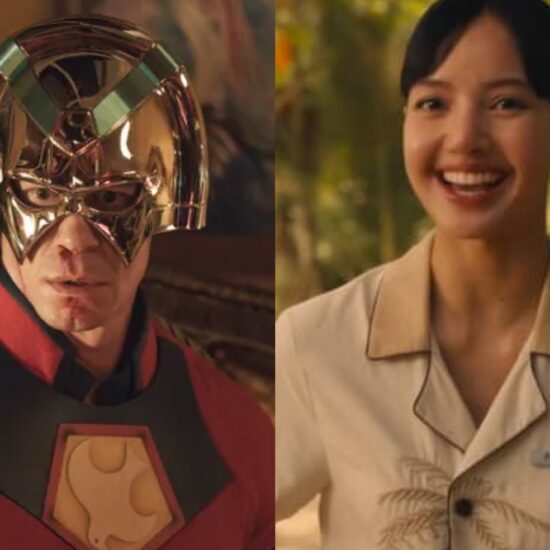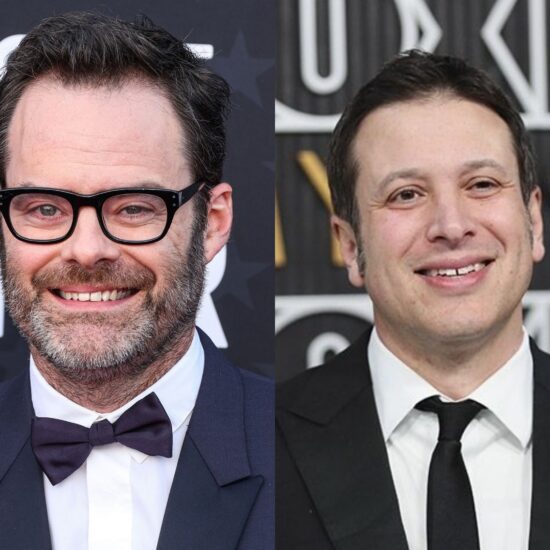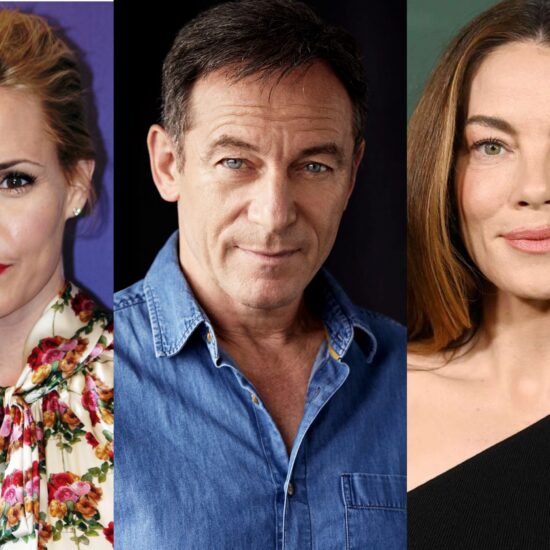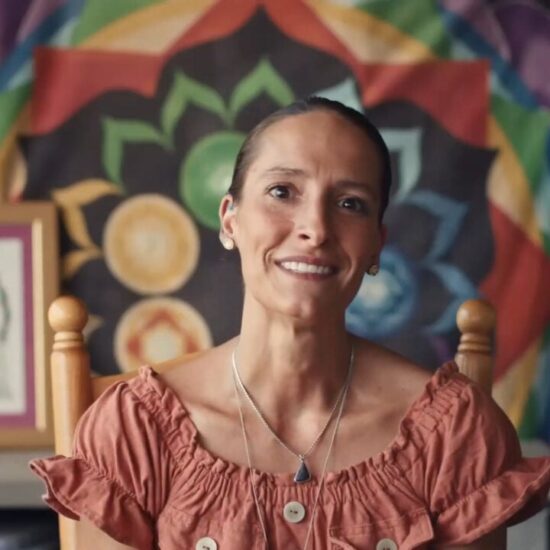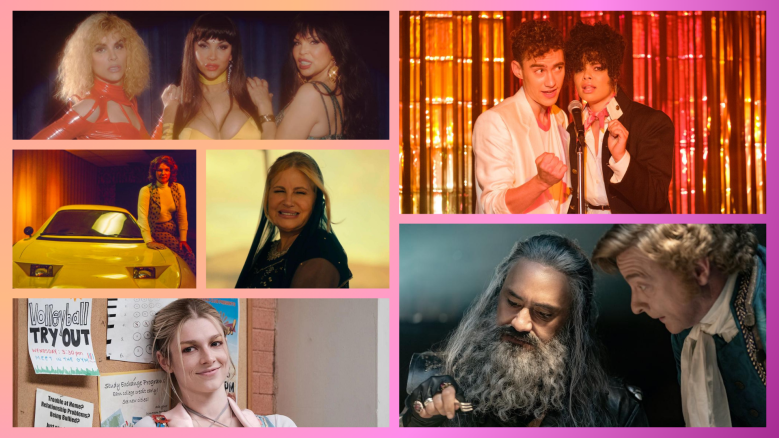
We’ve come a long way since “Sex and the City,” but what will queer HBO offerings look like when HBO Max becomes Max in May 2023?
(Clockwise from bottom left): “Euphoria,” “Lady and the Dale,” “White Lotus,” “Veneno,” “It’s A Sin,” and “Our Flag Means Death”
Courtesy Everett Collection
The streaming service soon to be known as Max may be losing a lover’s name in HBO, but there’s no forgetting that HBO Max had some of the best queer TV shows of the pandemic age.
In the ever-shifting streamer landscape, it can be exhausting to navigate a different user experience each time you want to watch something. And surprisingly, for the network that brought us “Six Feet Under” and “Sex and the City,” HBO Max never had an LGBTQ tag to filter its offerings. Instead, queer and trans inclusive storylines were embedded in the plots of prestige dramas (see everything from “Game of Thrones” to “The Last of Us”) and half-hour comedies (here’s looking at you, “Our Flag Means Death”) in and outside of the HBO Max Original brand, ripe for the finding and worthy of celebrating.
In the absence of a dedicated category, this list was intended to serve as a guide for the queer TV-phile — quality control included. But the Warner Bros. Discovery merger has meant saying goodbye to the surprisingly effervescent HBO Max catalogue in bits and pieces over a span of months. Countless titles — including voguing competition series “Legendary,” young adult dramedy “Generation,” and miniseries “Mrs. Fletcher” — are no longer streaming on the platform. Sure, “The Other Two” is returning for a third season, but the futures of plenty of other projects hang in the balance ahead of the May 23 Max launch date.
When, how, and if this particularly strong assemblage of titles will reappear remains to be seen. But HBO has never forgotten queer audiences, as its more recent offerings prove, and these TV shows still exist even if they’re not readily available. Between “Euphoria,” “Veneno,” and “It’s a Sin,” all of which we highlight here, HBO has produced some of the best queer TV shows of the last few years.
Here’s a list of some of the hits that appeared on HBO Max, eminently binge-able and delightfully queer. They are listed in no particular order, but titles removed from the platform are at the end.
With editorial contributions by Ryan Lattanzio and Wilson Chapman.
-
“Los Espookys”

Image Credit: Courtesy HBO There aren’t enough shows aimed at queer weirdos, which makes the too-soon cancellation of the proudly freaky “Los Espookys” sting all the harder. Over the course of two seasons, the Spanish language comedy series — created by Julio Torres, Ana Fabrega, and Fred Armisen, all of whom starred — marched by the beat of its own drum, telling wild stories about a group of misfit, mostly queer friends who create their own business of bringing horror film hoaxes to life. Episodes swerve into bizarre storylines with haunted mirror demons, water spirits, and rewriting Don Quixote for children, all portrayed with a melodramatic, campy touch and delightfully ramshackle special effects. And although the Espookys’ sexualities usually aren’t the main focus, the show isn’t shy about it either — particularly with Andrés (Torres, a standout in a rock-solid ensemble), a pampered, preening prince who flits around from man to man looking for someone to take care of him. In most shows, a figure like Andrés would be a joke — in the off kilter, sweet, and queer world of “Los Espookys,” he’s a flawed but fabulous hero. —WC
-
“Somebody Somewhere”

Image Credit: Courtesy HBO Who would have thought that the powerhouse cabaret performer Bridget Everett would produce one of the most elegant and nuanced TV shows about small town life? Kansas City stands in for anywhere, U.S.A. in this understated and poignant comedy, which mines humor and meaning from the humdrum reality of real people. Guided by the deftly funny touch of writers Hannah Bos and Paul Thureen (“Driveways”), “Somebody Somewhere” finds subtle drama in the everyday: Aging parents, entrenched sibling dynamics, and unrealized dreams. What else is there to life, really? The charming Jeff Hiller, too often relegated to cliched character bits, is given center stage as a sweetly optimistic gay man making the best of dating in the Midwest. New York drag legend Murray Hill sheds his flashier bits to play Sam Rococo, offering a rare depiction of a small-town trans man finding happiness. Everett is every bit the hilarious ringleader, but she also sets the tone with a down to earth pathos. As delightful as it is moving, “Somebody Somewhere” is a rare and gentle gem in the noisy TV landscape. —JD
-
“The White Lotus”

Image Credit: Courtesy HBO A show that needs no introdution is a rarity these days, but Mike White’s over-the-top class satire is one of the few shows keeping appointment viewing alive. (The others, “Succession” and “The Last of Us,” are also on HBO.) For those of us who like a lot of camp with our intrigue, there’s nothing more addictive than the high-budget, low-class drama of the self-absorbed elite in “The White Lotus.” From Murray Bartlett’s fugue-state breakdown in Season 1, to Jennifer Coolidge’s iconic “these gays, they’re trying to murder me” awakening, White seems to have crafted the beats of his darkly witty melodrama like a queer fantasy football league. Sardonic Aubrey Plaza, a gay cabal, and an ensemble of newly discovered eye candy that can also act? Leave it to a bisexual to exactly know what everyone wants. —JD
-
“Our Flag Means Death”

Image Credit: Courtesy HBO Max “When [Taika Waititi and I] were talking about it early on, the reason to do the show is figuring out how these two people fell in love,” series creator David Jenkins told IndieWire of the “Our Flag Means Death” Season 1 finale in 2022. “It’s essentially a rom-com. It’s a pirate romance between these two characters.” Starring Rhys Darby as Stede “The Gentleman Pirate” Bonnet opposite Waititi as Ed “Blackbeard” Teach, the beloved HBO Max comedy charts one man’s unlikely journey into piracy and the depths of love. —AF
-
“It’s a Sin”

Image Credit: HBO Max Since creating “Queer As Folk” (the original pithier British one) in 1999, Russell T Davies has been one of the most reliable creators of quality LGBTQ entertainment. After a hiatus as showrunner of “Doctor Who,” where he left an indelible mark on the landmark series, Davies returned to his LGBTQ roots with two queer miniseries: “A Very English Scandal” and “It’s a Sin.”
In five episodes that are equally heartwrenching and fun, “It’s a Sin” colors its AIDS story with a new layer — joy. Set in London throughout the 1980s, the series follows of a group of queer friends as they navigate the early days of the epidemic through its worst times. But “It’s a Sin” is at its heart a celebration of the community that was lost, making it all the more tragic without flattening the human stories to another number. By sublimating the tragedy in favor of pleasure, Davies offers a much more realistic protrait of queer life at its most critical era. —JD
-
“Veneno”

Image Credit: HBO Max The sleeper hit of the season, this brilliant Spanish drama tells the story of Cristina Ortiz Rodríguez, a real life transgender singer also known as La Veneno. After appearing on one of Spain’s popular late-night TV shows, La Veneno became a beloved national celebrity in Spain. Told between flashbacks and present day, the eight-episode series follows the ups and downs of her improbable life, from childhood traumas to the creation of a charismatic persona that afforded her the freedom to be an inspiration to generations of queer and trans people. —JD
-
“The Lady and the Dale”

Image Credit: HBO Max Truth is always stranger than fiction, and in the case of “The Lady and the Dale”, wildly so. HBO’s four-part docu-series, executive-produced by the Duplass Brothers and directed by Nick Cammilleri and Zackary Drucker, charts the improbable story of Elizabeth “Liz” Carmichael, a larger-than-life entrepreneur who developed a fuel-efficient three-wheeled car named The Dale at the height of the 1970s oil crisis. While The Dale was her crowning achievement, Carmichael’s life took more twists and turns than the futuristic three-wheeler’s ill-fated test run.
Part investigative mystery, part eccentric character study, “The Lady and the Dale” renders Liz’s adventurous life with inventive zeal, using whimsical paper cutout animation to bring life to the decades-old characters. A subject of media fascination at the time, Liz’s identity as a transgender woman became inextricably linked to her duplicitous business dealings, making her a powerful real-world example of the “trans deception” trope at its most insidious. Her trans-ness is explored with tender nuance; carefully extricated from the more complicated parts of her story and contextualized in trans history. While not the whole story, this is one of the reasons “The Lady and the Dale” is essential viewing. —JD
-
“The Flight Attendant”

Image Credit: HBO Max While it seems every show has a gay supporting character these days, “The Flight Attendant” has a few, all inside a quick-witted, totally addictive, woman-fronted thriller. “Big Bang Theory” star Kaley Cuoco made an impressive leap to prestige TV this year in this literary adaptation, which she also exectuive produced. We stan a woman making moves.
With killer comedic instincts and hate-to-love-her charm, Cuoco thrives as Cassie, a flight attendant with a drinking problem who inadvertently stumbles into an international murder investigation after a promising one night stand. As she attempts to make sense of her blacked out memories, she is aided by co-worker Shane (Griffin Matthews) and stymied by her uptight brother Davey (T. R. Knight). With solid support from two gay characters, both with distinct personalities totally unrelated to the other — not to mention delicious turns from seasoned actresses Rosie Perez and Michelle Gomez — “The Flight Attendant” will have you flying high. —JD
-
“Betty”

Image Credit: HBO Max Since her impressive debut with 2015’s riveting hybrid documentary “The Wolfpack,” filmmaker Crystal Moselle has continued to push the envelope with her distinctive style. Her narrative feature debut “Skate Kitchen” (2018) was an evocative portrait of an all-girl skate crew, which cast first-time actors dripping with style and charisma and shaped the story around them. The result was one of the best movies in recent memory to portray contemporary young adult women with the style and tenacity they deserve.
Shrewdly building on the solid foundation Moselle laid in “Skate Kitchen,” HBO gave the filmmaker a six episode, half-hour series to further explore her unique cast of characters. Re-titled “Betty,” the show brings back tomboy shredder Camille (Rachelle Vinberg), stoner lothario Kirt (Nina Moran), beguiling weed dealer Indigo (Ajani Russell), shy but totally funky Honeybear (Moonbear), and good-natured Janay (Dede Lovelace). The members of the all girl skate crew spend their days nailing tricks, smoking weed, and alternately fighting and flirting with the asshole dudes who think they own the skate park. —JD
-
“The Other Two”

Image Credit: HBO Max One of the funniest actual comedies to come out in recent memory, “The Other Two” humiliates its diabolically self-involved characters with surgical and distinctly millennial precision. Created by former “SNL” co-head writers Chris Kelly and Sarah Schneider, “The Other Two” revolves around two adult siblings, one a struggling actor (Drew Tarver) and the other just struggling (Heléne York), whose younger brother becomes an overnight Justin Bieber-like sensation via YouTube. With ambitions thwarted and egos crushed, they must jump on the bandwagon and attempt to ride his success.
Tarver and York have an endlessly appealing frisson, and Molly Shannon is hilarious as their faux-naive stage mother who secretly loves the spotlight. We can thank HBO Max for rescuing “The Other Two” from Comedy Central cable login purgatory and making it available for countless re-watches. —JD
-
“Euphoria”

Image Credit: HBO Max One of the most exciting TV discoveries of the 2019 season, “Euphoria” set the high bar for “teen” shows, if it can even be considered one. The characters in “Euphoria,” though in high school, act more like European twentysomethings than American teenagers. But they certainly have their finger on the pulse when it comes to gender and sexuality. Pulsing with an innocent but open-minded eroticism, “Euphoria” wears its queerness like any Gen Z’er — casually and entirely. In addition to Zendaya’s star turn as sleepy tomboy Rue, the show also gifted the culture with the elusive and compelling Jules (Hunter Schafer), one of the best trans characters to ever grace a screen. —JD
-
“Search Party”

Image Credit: HBO Max One of the funniest and sharpest shows on television arrived on HBO Max not a moment too soon, and just in time to premiere its long simmering third and fourth seasons practically back to back. Originally premiering on TBS in 2016, the wryly funny hipster murder mystery was the perfect balm in a stormy sea of apocalyptic news, balancing a fatalistic sense of humor with a compelling storytelling and a healthy sense of self deprecation for an entire generation of disaffected semi-youth.
Created by Charles Rogers and Sarah Violet Bliss with Michael Showalter, “Search Party” revolves around a group of four friends who unwittingly become involved in an acquaintance’s death. The latest seasons continue to push the dark comedy envelope further into probing social satire, revealing a courage and creativity to push the envelople ever further. —JD
-
“Gentleman Jack”

Image Credit: HBO Max Created, written, and co-directed by Sally Wainwright (“Happy Valley,” “Last Tango in Halifax”), this lighthearted period dramedy tells the true story of Anne Lister, an early-19th century diarist and landowner who lived fairly openly as a lesbian. Wainwright had a wealth of material to draw from in Lister’s 4 million-word diary, and the relationships and characters are uncannily vibrant in their specificity. Lister was a dynamic figure who dressed in men’s undergarments, collected the rents for her family estate long before women got the vote, and wooed and bedded some of 19th century England’s highest society women. The show is driven by a charismatic turn from British actress Suranne Jones, who imbues Anne with enough swagger to make any butch stand up a little taller. —JD
-
“And Just Like That”

Image Credit: HBO Max Has there ever been a title more descriptive of how a TV show landed into the media landscape? And just like that… people are declaring which “Sex and The City” character they are again. And just like that… Brady is having loud sex. And just like that… Che Diaz became a unifying cultural phenomenon, one you don’t know whether to love or hate or simply pat on the back in stunned amazement. Played by Sara Ramirez, the non-binary podcaster and “comedian” arrived like a thief in the night, sweeping Miranda off of her feet and out of her comfortable Brooklyn townhouse life — and marriage. Of the many unhinged choices Michael Patrick King made to usher the ladies into 2021, Che Diaz was the most chaotic. We may not like it, but it’s certainly one way to keep viewers tuning in week after week. —JD
-
“Nuclear Family”

Image Credit: HBO Max In this sensitive and gripping three-part docuseries, indie filmmaker Ry Russo-Young (“Nobody Walks,” “Before I Fall”) mines her personal history for a compelling cautionary tale about the early days of queer parenting. Through interviews with her two moms, thoughtful Robin and headstrong Russo, Russo-Young tells the story of her family; how it came to be and how it almost was torn apart. Pioneers of lesbian parenting, Robin and Russo had a fantasy of collective queer parenting, inviting their gay sperm donors into their family lives. But without a roadmap or a legal agreement, their queer utopia is disrupted when Ry’s bio-dad suddenly reneges on his agreement. Darkly personal, surprisingly funny at times, and engaging from start to finish, an important chapter of queer history is artfully preserved. —JD
-
“Hacks”

Image Credit: HBO Max “Hacks” Season 2 leans heavily into Ava’s (Hannah Einbinder) queer identity. “You speak lesbian, because you’re half,” Deborah Vance (Jean Smart) tells her the night before she’s set to deliver her standup routine on an all-lesbian cruise in the middle of the ocean. The series created by Lucia Aniello, Paul W. Downs, and Jen Statsky seamlessly integrates Ava’s queerness as less a story device than a thing that’s just humming along in the background. The show is also careful to skewer the lopsidedness of attitudes — both hetero and homo — toward bisexuality as something that, as Carrie Bradshaw would say in another HBO series, is perceived as a “layover on the way to gay town.” “Hacks” is hilarious and touching in equal measure, like a vacation read you won’t want to put down. —RL
-
“Irma Vep”

Image Credit: HBO Max French director Olivier Assayas walked a tightrope with his 1996 unclassifiable, meta-moviemaking drama “Irma Vep.” It starred Hong Kong icon Maggie Cheung as herself, starring in a French film whose director was played by cinema legend Jean-Pierre Leaud, as they attempted to remake Louis Feuillade’s classic silent film serial “Les Vampires.” A treatise on Hollywood? A lampoon of the French film industry? A meta exercise in the negotiations between a major actress and a serious director? All of the above.
Now, Assayas has remade his own movie with Alicia Vikander as the movie star, a blockbuster icon now flung out of her element in Paris. She’s on the set of the “Vampires” remake, reeling from a breakup with her former assistant whom she’s begging to get back. Only one episode in, and Assayas’ HBO Max series establishes itself as a slinky, loose-limbed takedown of the movie business, and a queer woman’s shattering psyche. —RL
-
“Mrs. Fletcher” [REMOVED]

Image Credit: HBO Max Adapted from the bestselling novel by Tom Perrotta, who also created the series, “Mrs. Fletcher” boldly and hilariously charts the sexual awakening of a middle-aged mother named Eve Fletcher, played with great depth and humor by the always-excellent Kathryn Hahn. Feeling unmoored after her son goes off to college, Eve begins exploring her sexual fantasies through pornography, and further expanding her horizons with a writing class at a local community college. Jen Richards (“Her Story”) plays her writing professor, Margo, a self-assured trans woman thrown for a loop by a budding romance with one of her students. Without revealing too much, Richards isn’t the only queer character in “Mrs. Fletcher,” which navigates a mature woman’s sexual journey with substance and panache. —JD
-
“Legendary” [REMOVED]

Image Credit: Courtesy HBO Max “Legendary” ranks among the most tragic losses from the end of the HBO Max era. Spotlighting ballroom culture in a main stage televised spectacle akin to “RuPaul’s Drag Race,” the reality competition series saw a collection of spectacularly talented Houses dress to impress in performance battles featuring dancing and voguing. Dashaun Wesley served as Master of Ceremonies, with Jameela Jamil, Law Roach, and Leiomy Maldonado judging all three seasons. Megan Thee Stallion judged the first two seasons, before Keke Palmer took over in Season 3. The show was praised extensively for providing a national platform for the still largely underground subculture: a point underlined by GLAAD, which slammed the cancelation of the series and said the show “raised the bar for inclusivity on TV programming on so many different levels, especially when it comes to celebrating Black and queer culture.” —AF
-
“Genera+ion” [REMOVED]

Image Credit: HBO Max Written by father/daughter duo Daniel and Zelda Barnz (who was 19 at the time), “Genera+ion” follows a group of California teenagers as they explore their sexuality in an ever-shifting world. Though the cast of newcomers is inclusive of many racial identities, this particular lens of identity exploration is left mostly untouched, an oversight of the white creatives behind the project. Stylistically, “Genera+ion” uses a few gimmicky structural elements, like exploring the same day/scene through different characters’ perspectives. The use of technology — via Instagram, Snapchat, porn, and texting — is one of the show’s stronger points, and Martha Plimpton plays a killer conservative religious Mom. —JD
Sign Up: Stay on top of the latest breaking film and TV news! Sign up for our Email Newsletters here.









